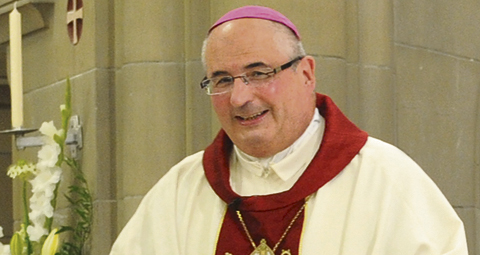 My Dear Brothers and Sisters in Christ
My Dear Brothers and Sisters in Christ
In his message for Communications Sunday this year, Pope Francis reminds us that Communication is part of God’s plan for us, allowing us to express and share all that is true, good, and beautiful. But he warns us, that when we yield to our own pride and selfishness, we can distort our ability to communicate.
The capacity to twist the truth is a human failing. Today we are witnessing the spread of what has come to be known as “fake news”. This has caused the Pope to make truth the theme of this year’s communications message, when he urges us to: “contribute to our shared commitment to stemming the spread of fake news and to rediscovering the dignity of journalism and the personal responsibility of journalists to communicate the truth.”
The term “fake news” refers to the spreading of disinformation online or in the traditional media based on non-existent or distorted data designed to deceive and manipulate the reader by mimicking real news. Social networks can allow untrue stories to spread so quickly that even authoritative denials fail to contain the damage.
Such disinformation can discredit and demonise while fomenting conflict and spreading arrogance and hatred. Preventing and identifying the way disinformation works calls for a profound and careful process of discernment. So how do we defend ourselves? The most radical antidote to the virus of falsehood is purification by the truth.
In Christianity, truth is not just a conceptual reality that regards how we judge things, defining them as true or false. Rather, truth involves our whole life. In the Bible, it carries with it the sense of support, solidity, and trust. We discover and rediscover the truth when we experience it within ourselves in the loyalty and trustworthiness of the One who loves us. This alone can liberate us, as in the words of the Gospel according to John: “The truth will set you free”.
To discern the truth, we need to discern everything that encourages communion and promotes goodness. I would like to quote at length from the Pope’s message and urge you to read his text in full which is available on the website of the Catholic Media Office at www.scmo.org.
The Pope says;
‘The best antidotes to falsehoods are not strategies, but people: people who are not greedy but ready to listen, people who make the effort to engage in sincere dialogue so that the truth can emerge; people who are attracted by goodness and take responsibility for how they use language. If responsibility is the answer to the spread of fake news, then a weighty responsibility rests on the shoulders of those whose job is to provide information, namely, journalists, the protectors of news. In today’s world, theirs is, in every sense, not just a job; it is a mission. Amid feeding frenzies and the mad rush for a scoop, they must remember that the heart of information is not the speed with which it is reported or its audience impact, but persons. Informing others means forming others; it means being in touch with people’s lives. That is why ensuring the accuracy of sources and protecting communication are real means of promoting goodness, generating trust, and opening the way to communion and peace.
I would like, then, to invite everyone to promote a journalism of peace. By that, I do not mean the saccharine kind of journalism that refuses to acknowledge the existence of serious problems or smacks of sentimentalism. On the contrary, I mean a journalism that is truthful and opposed to falsehoods, rhetorical slogans, and sensational headlines. A journalism created by people for people, one that is at the service of all, especially those – and they are the majority in our world – who have no voice. A journalism less concentrated on breaking news than on exploring the underlying causes of conflicts, in order to promote deeper understanding and contribute to their resolution by setting in place virtuous processes. A journalism committed to pointing out alternatives to the escalation of shouting matches and verbal violence.’
With these words, Pope Francis has bravely proposed to the world a journalism which we experience only too rarely, a journalism of moral and professional integrity which communicates the whole truth and respects the dignity of the people in the news and the people who receive the news.
On this Communications Sunday, I ask you to be partners in this quest for truth, by becoming discerning consumers of news media, regular readers of our catholic press and generous supporters of the church’s dedicated communications staff. On behalf of the Bishops of Scotland, I invite you to donate generously to today’s collection which funds our Scottish Catholic Media Office.
Yours devotedly in Christ
Philip Tartaglia
Archbishop of Glasgow
President, Communications Commission of the Bishops’ Conference of Scotland
